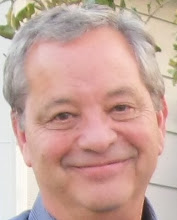SATURDAY, MAY 8, 2010
I recently had the opportunity to chat with fellow educators about the state of our profession. Two of my good friends are working on a book about teachers as professionals, and though I am very fond of them, I chuckled. State and national standards and testing have ended teaching as a profession. Perhaps a craft, but not a profession.
Day was when teachers decided what to teach, when to teach, how to teach. That creative, professional structure still exists in the fine arts and electives. However, communities and "experts" (who were not teachers) made decisions about what to teach. Since 1985 in Texas, Legislators have been deciding what to teach and what tests will be administered to determine if the subject was taught. It is not a giant leap given a defined curriculum and a defined measure, to literally tell teachers not only what to teach, and when to teach, but how to teach. That becomes necessary when the test outcomes are high stakes for schools and not for teachers. Hence, top-down scope and sequences, purchased curricula, and standardized intermediate measures called benchmarks, etc.
When I gather with mid-level educational managers I can engage in heady talk about instruction, the latest research on instructional practices, which recent book is most likely to shape the next generation of instructional implementation, etc., etc. When I gather with classroom teachers and attempt to initiate a similar discussion I am viewed as an inteloper. In general, teachers do not read research. Teachers do not collect data in their classrooms and reflect on their instructional practices. Teachers are frantic to plan tomorrow and grade today. Getting through the day without a broken copy machine, lunch duty and an irrate parent or principal is the sign of a good day. Suggest to teachers that additional staff development days be added to the school calendar and one faces armed revolt. Teachers will attend required trainings and will go to workshops that are paid for by others, but left alone they will browse teaching catalogs to find ancillary materials for their classrooms and bulletin boards. It is the mid-level administrators who know all the good stuff and have a plethora of strategies to implement. Administrators know it because they have the time and resources to learn it.
So, how do we reverse these positions? Much has been made of late about PLC's as a vehicle to instigate professional dialog on campii. But, the PLC talk is itself top-down from the lofty heights of researchers, college profs, central office staff and principals who were required to attend a workshop or read a book. In all my years in schools I can count on one hand the number of teachers who went to an administrator with a request to enhance their own professional practice, to attend a course, hear a speaker, initiate a discourse. Each of those great folks are now administrators.
I have a suggestion about how we might turn this entire conversation upside down, but I'm out of time, perhaps in more ways than one.
Sunday, September 11, 2011
Subscribe to:
Post Comments (Atom)

No comments:
Post a Comment